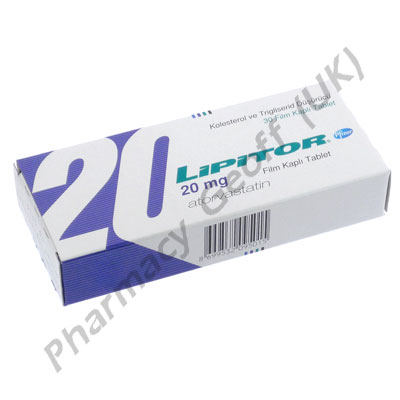
Brand Name: Lipitor. Lipitor (atorvastatin) is an oral medication prescribed by your doctor to treat people who are diagnosed with high cholesterol or high blood pressure (high blood levels of cholesterol or triglycerides in the bloodstream).
Lowering "bad" LDL cholesterol and increasing "good" HDL cholesterol and decreasing "unhealthy" triglycerides and cholesterol reduces the risk of stroke and heart attack and helps to prevent many other types of heart diseases, including coronary artery disease and some forms of cancer. Lipitor works by helping to stop or slow down the liver from converting cholesterol into plaque, which clogs arteries. It also reduces inflammation of the arterial walls that makes them more susceptible to blockages.
Lipitor is taken by mouth twice a day, for as long as you take it, to help increase your good cholesterol and reduce your bad cholesterol. It is most effective when combined with diet and exercise. Because it causes your body to produce more of both good and bad cholesterol, you may need to take it for a long time before it works to help keep the cholesterol levels where you want them. People who want to use Lipitor to treat high cholesterol should also talk to their doctors about using other methods of controlling cholesterol, such as diet and exercise, as part of their overall cholesterol control program.
In general, the benefits of taking Lipitor depend on the type of high cholesterol that you have and on your health care provider’s assessment of your current health. If you have had previous heart attacks or heart disease, you might not be able to take Lipitor if you have already developed these conditions.
Lipitor can cause side effects like nausea, vomiting, constipation, fatigue, nausea, diarrhea, abdominal pain, upset stomach, vomiting, dizziness, abdominal pain, chest pain, sweating, acne, breast swelling, dry skin, joint pain, tenderness, changes in skin tone and hair loss. There are also rare, sometimes serious side effects that are reported in people who take Lipitor as part of their treatment plan. These side effects are usually not life-threatening and may go away after several months without treatment.
The side effects of Lipitor vary from person to person and can be severe. If you are pregnant or breast-feeding, or are taking any type of prescription medicine, talk to your doctor or pharmacist about any possible side effects before starting any treatment with Lipitor. and always talk to your doctor about the use of Lipitor if you are allergic to certain ingredients in Lipitor, because you may need to avoid these ingredients while you are taking this medication.

While there are no known side effects of taking Lipitor in children under 12 years of age, doctors generally do not recommend its use in children younger than 12 years of age. If your child has diabetes, consult your doctor first. Lipitor can interfere with blood sugar control if you are already taking insulin. If you are on other medications and are being treated for high blood pressure or high cholesterol, ask your doctor or pharmacist about any possible interactions with Lipitor to help you avoid a potential problem.
The side effects of Lipitor may be caused by some of its ingredients. If you have questions about any side effects, talk to your doctor.
The best way to reduce your cholesterol levels is by changing your lifestyle. Eating a healthy diet, exercising regularly and having regular physical activities will help you keep your blood cholesterol at the normal range.
You should also eat a lot of fresh fruits, vegetables, nuts, fish and low fat dairy products. Avoid fatty and sugary foods. Taking a daily multivitamin can also help you maintain your healthy blood cholesterol.
When you are taking Lipitor, you will need to lose weight and keep it off so your body can function properly. This is why it is important to talk to your doctor about losing weight and keeping it off while taking this medication.
